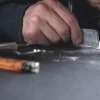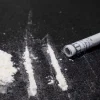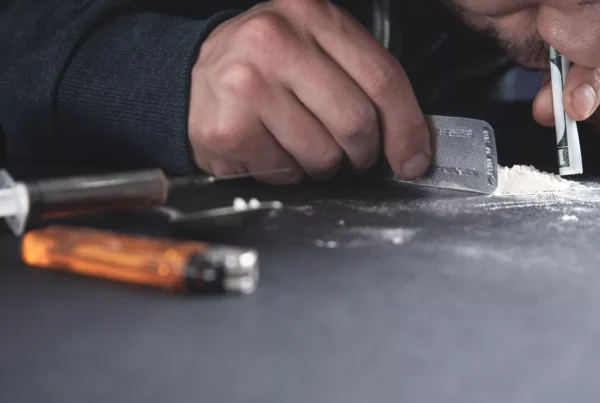Substance Abuse And The Role It Plays In Addiction
The United States has a long history of substance abuse. Alcohol has been used for centuries, tobacco for even longer than that, and drugs have been abused for at least as long as humans have been using them recreationally.
Substance abuse is a term used to describe the harmful or hazardous use of legal and illegal substances, for example, drugs and alcohol. It may also involve the use of prescription or over-the-counter medications in a manner not prescribed by a doctor. But no matter your substance of choice, it helps to know the answers about how long to rewire your brain from addiction if you are seeking recovery.
Keep reading to find out more about Resurgence Tennessee and its services, and how they can help you begin a healing journey to rewire brain from addiction!
The Effects Of Substance Use Disorders

The effects of substance use disorders can be felt on every level: physical, psychological, and social. Substance use disorder affects the brain and body and can be progressive, meaning that it gets worse over time if left untreated.
People struggling with substance use often experience:
- Tolerance — needing more of the substance to achieve the same effect or feeling.
- Withdrawal — physical or psychological symptoms when stopping or reducing consumption of a drug or alcohol.
- Behavioral changes — such as neglecting responsibilities, using drugs or alcohol in dangerous situations, and engaging in risky behaviors.
- Health problems — such as liver damage from drinking too much alcohol, poor nutrition due to poor eating habits, heart disease or high blood pressure from smoking cigarettes, infections from sharing needles for injecting illegal drugs, and more.
The effects of substance abuse can be physical, psychological, and behavioral. Substance abuse has been linked to many health problems such as cancer and hepatitis C infection, HIV infection, heart disease, injuries from accidents caused by substance use, and other problems such as depression and anxiety disorders.
24 Hour Mental Health Treatment
888-290-5254
The Role That Mental Health Plays In Addiction
Mental health issues and substance use disorders are strongly linked. Research shows that the majority of people who have a substance use disorder also experience mental health problems. The relationship between mental health and substance abuse is complex, but it can help to understand how each condition may be contributing to the other.
Substance use disorders can also develop after someone has experienced trauma or abuse, which can lead to self-medication with substances. In addition, many people with mental illness also experience addiction; in fact, a statistically significant portion of persons struggling with severe depression also have an addiction problem.
The most commonly diagnosed mental health disorders among people with substance use disorders include:
- Anxiety disorders, such as generalized anxiety disorder (GAD) and post-traumatic stress disorder (PTSD)
- Mood disorders, such as depression or bipolar disorder
- Personality disorders, such as borderline personality disorder (BPD) or antisocial personality disorder (ASPD).
Drug Abuse And The Effect It Has On The Human Brain
Drugs and alcohol affect brain chemistry in ways that may lead to changes in behavior and cognition. These changes can be temporary or long-lasting depending on how much of the drug is used and how often it’s used. Drugs affect brain health and brain function by causing damage to its function. Compulsive drug use can also affect the physical structure of the brain itself.
Addiction affects brain cells and the brain’s neurotransmitters, causing them to shrink in size over time. Brain scans show that the brains of people who are addicted have less gray matter than those who aren’t addicted.
Gray matter is made up of nerve cells (neurons) and plays an important role in the brain’s chemical processes including memory and learning, movement, sensory perception, and attention.
How Are Various Areas Of The Brain Affected By Chemical Dependency?
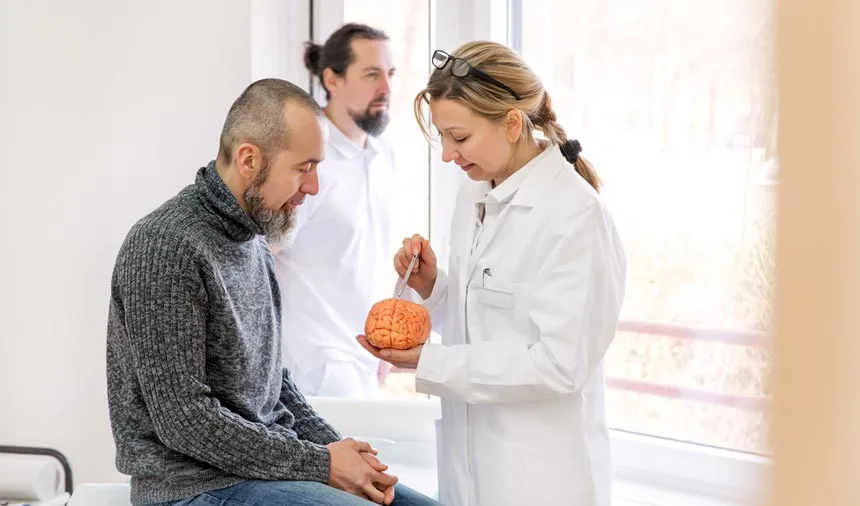
The brain changes that occur with addiction can be observed through imaging techniques such as magnetic resonance imaging (MRI) and positron emission tomography (PET). These techniques show how drug use can cause structural changes and alter the very function of the various brain regions and damage brain health, including:
- Prefrontal cortex: This region helps us make decisions about what we want out of life and how best to achieve our goals. It is also responsible for self-control and impulse control – two skills that are extremely important for preventing addictive behaviors from developing into full-blown addictions.
- Cerebral cortex: The parts of your brain that control memory, attention, thought processes, and language; these areas are involved in learning and memory functions.
- Basal ganglia: These areas are involved in motor coordination, motivation, and reward processing; they also control voluntary movement by transmitting signals from the cerebral cortex to other parts of the brain.
- Thalamus: This region acts as a type of relay station between sensory input and other parts of the brain; it helps process information so it can be sent on to other parts of your brain for further processing or action.
24 Hour Substance Abuse Treatment Hotline
888-290-5254
How A Substance Use Disorder Hijacks The Brain’s Reward System
The reward system of the human brain is made up of structures deep within the brain’s limbic system that includes the ventral tegmental area (VTA) and the nucleus accumbens (NAc). The VTA secretes dopamine into the NAc, which acts as a messenger molecule between cells communicating information about rewarding experiences such as food or sex.
In this way, dopamine plays an important role in transmitting signals that reinforce certain behaviors while inhibiting behaviors that don’t provide rewards. The neurotransmitter serotonin modulates these effects of dopamine levels by acting as an inhibitory influence on reward-seeking behaviors.
The Brain Chemistry of Addiction
Drugs such as cocaine, heroin, and methamphetamines stimulate dopamine release in the brain’s reward system by binding directly to receptors on nerve cell surfaces. This results in feelings of pleasure or euphoria — which explains why people often continue to take drugs even when it becomes clear they have problems because of their use. These pleasurable feelings are what make people want to continue using drugs despite negative consequences like lost relationships or financial trouble.
In essence, the problem here is that the substances rewire the brain and its neural pathways, and not for the better. Because of the flood in dopamine and other feel-good hormones caused by the substance, the brain adapts and comes to expect and requires elevated dopamine levels.
What Sort Of Withdrawal Symptoms Accompanies Drug Addiction?
Withdrawal symptoms are the negative physical, emotional, and mental effects of stopping or reducing drug use after a period of increased use, or chronic use. Withdrawal symptoms can be uncomfortable and dangerous. Some of the most common withdrawal symptoms include:
- Intense cravings for the drug.
- Anxiety, panic attacks, and paranoia.
- Depression and mood swings.
- Insomnia and irritability.
- Sweating, chills, nausea, and vomiting.
- Abdominal cramps, diarrhea or constipation, and muscle aches.
Brain Rewiring After Addiction
Addiction recovery involves helping your brain heal and return to normal functioning so that you no longer have cravings for drugs or alcohol and can once again feel pleasure from everyday activities like eating healthy foods or spending time with friends and family members. How long does it take? The process of the brain’s recovery can take typically, as a general estimate, anywhere from three months up to one year. This can depend on your brain structure, as well as your level of severity in terms of drug use and/or drinking.
The recovery process involves brain rewiring so that you can stop relying on drugs or alcohol for comfort and happiness. You will replace those negative behaviors with positive ones that keep you healthy and happy without substances.
Healing through the Addiction Treatment

Typically, addiction treatment is a multi-tiered process that starts with a detox supervised by medical professionals to rid the body and brain of the physical need for the substance. From there, in order to attain the best outcomes, a combination of behavioral therapies is usually employed. The truth is that this is the bulk of the work for recovery.
When in the depths of addiction, negative behavioral patterns are developed. These are linked deeply within the brain. Using behavioral therapy frameworks like Cognitive behavioral therapy are employed in one-on-one, group, and family therapy sessions.
The brain is a complex organ and so, being able to unpack the negative thoughts, difficult emotions, and negative patterns associated with chronic exposure to highly addictive substances is key to seeing the positive changes associated with recovery. Everyone can react differently to the process of recovery and so, tempering expectations on a timeline with treatment can be necessary.
Get Immediate Help For Drug Addiction!
888-290-5254
Get Help With Resurgence Tennessee Today!
The benefits of seeking addiction treatment at a professional facility are numerous. Addiction treatment programs are staffed by trained professionals who know how to deal with people struggling with addiction and other mental health issues.
At Resurgence Tennessee, you will receive the best possible, industry-standard, care from recovery professionals who are trained in treating addiction to most drugs. Our staff understands the physical, mental, and emotional needs of clients and works to meet those needs while they undergo treatment. At Resurgence TN, we also offer a wide variety of treatment options to fit virtually all circumstances necessary for effective recovery and treatment.
Addiction can be a debilitating disease to suffer from. Addiction recovery can literally give the one struggling with it a new lease on life. Given all the dire risks associated with inaction, if you or a loved one are struggling with substance use, we encourage you to reach out to us today. Our addiction recovery specialists are standing by and ready to set up your consultation to help you find the road forward!
